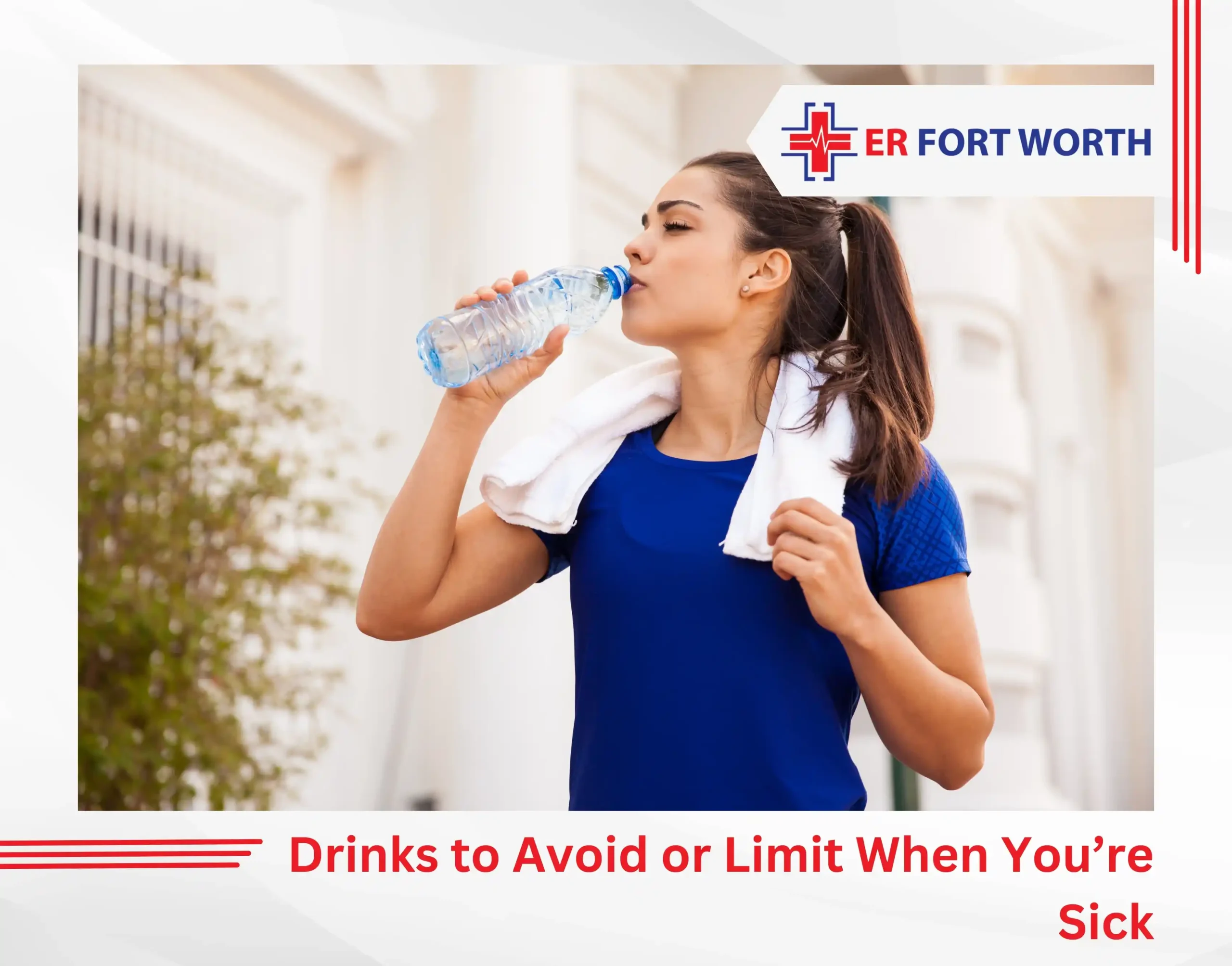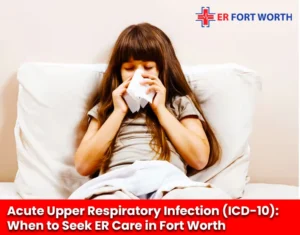Do you know that staying hydrated is one of the best ways to support your body while it fights off illness? But plain water alone is not enough to replace everything your body loses through sweating, coughing, or reduced appetite.
If your throat hurts, warm drinks can bring relief in a way that cold sodas never will. Understanding these differences helps you take better care of yourself and recover faster.
This guide will walk you through what to drink when sick, which drinks to avoid, and simple tips to stay hydrated as your body heals. Let’s get started.
Why You Need Hydration When Ill

When you’re sick, your body works harder than usual, and you often lose more fluids than you take in. Fever makes you sweat, coughing and rapid breathing can cause dehydration, and nausea or a sore throat may prevent you from drinking enough. All of this adds up to a risk of dehydration.
Dehydration doesn’t just make you feel tired; it can also slow down recovery. If it worsens, it can impact how well your organs function.
The right hydration helps in the following ways:
- Warm teas can soothe irritation
- Broths can add nutrition and fluids
- Electrolyte drinks can help restore minerals lost during fever, vomiting, or diarrhea
- Soothe a sore throat or irritated stomach
- Help thin mucus so you can breathe easier
- Regulate body temperature
- Support your immune system
Every parent should catch these early: 8 Signs of Dehydration in Children
What to Drink When Sick: 4 Effective Drinks
Some drinks provide your body with the hydration, nutrients, and comfort it needs to recover, while others can exacerbate symptoms. Below are the best fluids to reach for when you’re sick:
1. Water: Your Base for Hydration
Sip water regularly throughout the day, even if you don’t feel very thirsty. It’s the simplest and most effective way to replenish lost fluids and keep your body functioning properly. Water acts as the baseline. You can layer other drinks on top, but this should always come first.
2. Herbal & Soothing Teas (Sick Day Drinks)
- Ginger Tea: It helps calm nausea and stomach upset. Its anti-inflammatory properties ease sore throats and may help clear sinuses.
- Peppermint Tea: Contains menthol, which can soothe coughing and ease congestion. Works as a natural anti-inflammatory and provides a cooling, refreshing effect.
- Chamomile Tea: Known for its calming effects that support rest and sleep.
- Elderberry & Echinacea Tea: Both herbs are linked to immune system support. Some studies suggest they shorten the duration of colds or flu.
- Green Tea with Lemon: Packed with antioxidants that support the immune system. Adding lemon provides vitamin C, which may further boost recovery.
- Hibiscus Tea: Naturally caffeine-free and rich in antioxidants. Provides light electrolytes and is highly hydrating, making it a top choice when you’re ill.
3. Broths & Soups (Fluids for Fever)
Warm chicken or vegetable broth helps keep you hydrated while providing essential nutrients. The warmth helps ease nasal congestion and soothes itchy throats. You can also add ginger, garlic, or holy basil for anti-inflammatory and immune-supporting benefits.
4. Electrolyte-Rich Drinks
Fever, vomiting, or diarrhea can drain your body of salts and minerals. Drinks such as coconut water, oral rehydration solutions, or low-sugar sports drinks help restore electrolytes and maintain balanced hydration.
Drinks to Avoid or Limit When You’re Sick

Not every drink helps when you’re under the weather. In fact, some can slow down recovery or even exacerbate symptoms. Here are a few to keep in mind:
- Caffeinated Beverages (Coffee, Black Tea): Drinks high in caffeine act as mild diuretics, meaning they can make you lose fluids more quickly. When you’re already sick and at risk of dehydration, too much coffee or strong black tea can worsen symptoms.
- Sugary Sodas or Juices: While they may taste comforting, sodas and fruit juices loaded with added sugar can spike inflammation and upset your stomach.
- Alcohol: Alcohol is one of the worst choices when you’re sick. It dehydrates the body and can suppress the immune system, making you more susceptible to infections.
- Excessive Plain Water: Staying hydrated is essential, but drinking too much plain water without balancing electrolytes can be risky, especially in cases of high fever, vomiting, or diarrhea.
4 Practical Tips for Sick-Day Hydration
What to drink when sick doesn’t have to be complicated. A few small habits can make a big difference in how you feel:
1. Sip Slowly and Often
Don’t try to gulp down large amounts at once. Your body absorbs fluids better in smaller, steady sips. Warm or room-temperature drinks are usually easier on a sore throat and more soothing than icy cold ones.
2. Add Honey and Lemon to Teas
A teaspoon of honey can coat and calm a scratchy throat. Lemons provide a boost of vitamin C and add a refreshing taste to your drink. Together, they make teas not only more comforting but also more effective.
3. Watch Your Urine Colour
A simple way to track hydration is by observing the color of your urine. Light yellow usually means you’re well hydrated, while darker urine or very little output can be a sign of dehydration.
4. Pair Rest with Fluids
Your body heals best when it’s both hydrated and well-rested. Keep a water bottle or a mug of tea by your bed so you can sip on it throughout the day with minimal effort.
When to Seek Medical Attention

Your go-to guide on “what to drink when sick” helps you manage symptoms at home. However, it’s essential to know when to stop waiting and seek medical help.
- Persistent High Fever – If your fever stays high for more than a couple of days or spikes suddenly.
- Signs of Severe Dehydration – Such as very dark urine, dizziness, dry mouth, or little to no urination.
- Confusion or Unusual Drowsiness – These may signal that the body is under serious stress.
- Symptoms That Don’t Improve – If your cough, sore throat, or stomach issues are getting worse instead of better after several days.
- Possible Complications – Chest pain, shortness of breath, or swelling should never be ignored.
Final Thoughts: Hydration Alone Isn’t Enough
When you know what to drink when sick, you heal faster. If your symptoms feel unmanageable or severe, an emergency room is the safest place to get back on track.
At ER Fort Worth, we provide IV fluids to quickly restore hydration and balance electrolytes. Our on-site lab testing helps identify the cause of your symptoms so we can begin the right treatment right away. Getting timely care makes all the difference in preventing serious complications.
FAQs
1. Can dehydration make a fever worse?
Yes. When you’re dehydrated, your body struggles to regulate temperature. This can make fevers feel more intense and harder to manage.
2. How do I know if I’m dehydrated when I’m sick?
Common signs include dizziness, dark urine, dry mouth, headache, and feeling unusually tired or irritable. Sick day drinks help replenish the lost fluids and ease your symptoms.
3. Why do some people crave salty drinks when sick?
Salt helps your body hold onto water. Craving salty broth or sports drinks is often your body’s way of signaling that it needs electrolytes, not just water.
4. Can caffeine worsen dehydration when you’re sick?
Yes. Caffeine acts as a mild diuretic, which means it makes you urinate more often. While one small cup of tea or coffee may not cause major harm, relying on caffeinated drinks when you’re sick can slow recovery.




